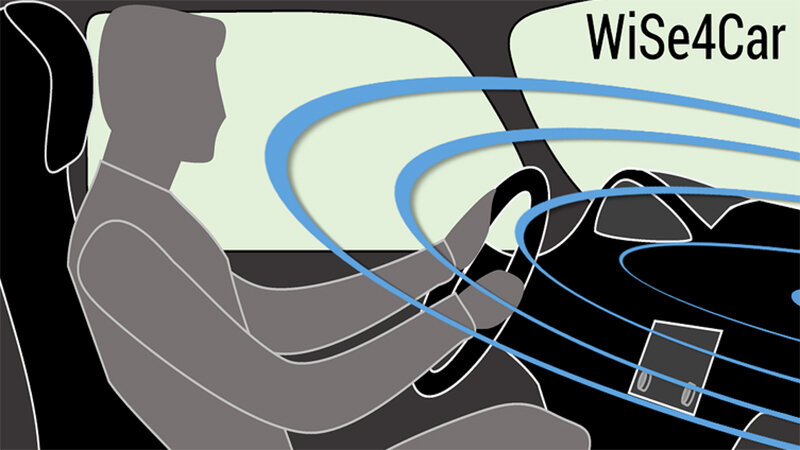TUCcurrent research
Professorship of Computer Architectures and Systems at Chemnitz University of Technology uses WiFi signals that can be reflected by the human body and easily analyzed to develop inclusive vehicle interiors
Graphics: Professorship of Computer Architectures and Systems
Vehicle interiors are generally designed for average body dimensions. This also influences, among other things, comfort and safety-related settings, such as the design and arrangement of airbags and headrests. “Some functions can be adjusted manually, but this is particularly critical in vehicles that are exchanged frequently, such as in car sharing or in vehicle fleets of large shipping companies. Although there are occupant protection systems for an inclusive vehicle cabin that automatically personalize some settings, these are associated with technical hurdles and high costs,” says Prof. Dr. Alejandro Masrur, holder of the Computer Architecture and Systems Professorship at Chemnitz University of Technology (TUC).
Against this background, the “WiSe4Car” project started at the TUC, which aims to use WiFi signals to analyze the vehicle interior. “The advantage of so-called WiFi sensing is that WiFi signals are absorbed and reflected by the human body,” explains Daniel Markert from the project team. These changes are reflected in the CSI (Channel State Information) data of the WiFi signals and can be detected and classified using artificial intelligence methods. “Unlike camera-based solutions, this technology is independent of lighting conditions and occlusions and maintains occupant privacy. “In addition, WiFi technology is already included in modern vehicles, which leads to a cost-effective and uncomplicated solution,” says Markert, describing the advantages.
In the next 18 months, a feasibility study on the use of WiFi sensing for perception tasks in vehicle interiors is expected to provide important insights. In particular, the possibilities and limitations of WiFi sensing in predicting the height and weight of the driver will be examined. “With the help of a demonstrator, we want to test and optimize the collection and evaluation of CSI data for different vehicle cabins and a different number of vehicle occupants,” says Masrur.
The Federal Ministry of Digital and Transport is funding the project with around 166,000 euros as part of the “mFUND” innovation initiative.
Homepage of the “WiSe4Car” project:
Further information issued by Daniel Markert, telephone +49 371 531-34946, email [email protected]
Mario Steinebach
21.03.2024
